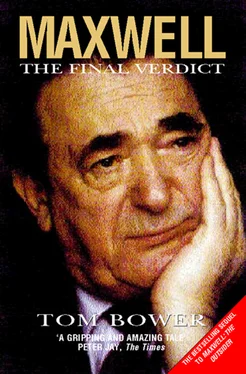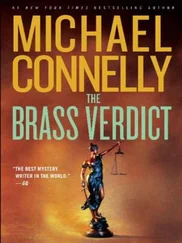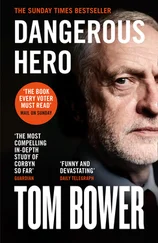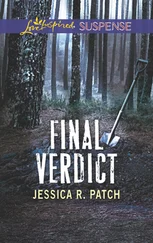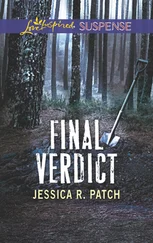That was by no means the end of the battle. Until October 1991, Maxwell regularly held meetings with lawyers and with his personal security staff to propel the battle towards my bankruptcy and his vindication. The readiness of Peter Jay, a journalist and former British ambassador, to function as his willing tool was sadly not unique in Britain or elsewhere. He merely epitomised a cravenness common among a horde of self-important personalities and powerbrokers whose self-esteem was boosted by the Chairman’s attentions and deep purse.
Unfortunately, the sort of campaign directed against my book acted as a disincentive for most newspapers against exposing Maxwell in his lifetime. Many blame Britain’s libel laws and lawyers’ fees for protecting him, yet the law and its expense were not the sole reason for British newspapers’ reluctance or inability to uncover his crimes. More important was the environment in which newspapers now operate.
Few newspaper editors and even fewer proprietors nowadays relish causing discomfort to miscreant powerbrokers. By nature anti-Establishment, the so-called ‘investigative’ reporter finds himself working for newspapers which are increasingly pro-Establishment. Only on celluloid, it seems, does an editor smile when listening to a screaming complainant exposed by his journalists.
Proper journalism, as opposed to straightforward reporting or the columnists’ self-righteous sermonising, is an expensive, frustrating and lonely chore. Often it is unproductive. Even the rarity of success earns the ‘investigative’ journalist only the irksome epitaph of being ‘obsessional’ or ‘dangerous’. The final product is often complicated to read, unentertaining and inconclusive. No major City slicker has ever been brought down merely by newspaper articles. Like the Fraud Squad, financial journalists usually need a crash before they can detect and report upon the real defects. Often, only with hindsight does the crime seem obvious. Even though in Maxwell’s case his propensity to commit a fraud had been obvious since 1954, it was almost impossible for any journalist to produce the evidence contemporaneously.
Moreover, many of those who reported Maxwell’s affairs during the 1980s were only vaguely aware of the details of the Pergamon saga in 1969, when his publishing empire had disintegrated amid suspicions of dishonesty which appeared to have terminated his business life. After three damning DTI reports, no one expected Maxwell’s resurrection. However, the DTI inspectors, having found the evidence of fraud and voiced a memorable phrase about his unfitness to manage a public company, had not directly accused him of criminality. It was the inspectors’ cowardly reluctance to publish their real convictions and the police failure to prosecute which permitted Maxwell during the 1980s, when explaining his life, to distort the record of the Pergamon saga.
Accordingly, by 1987, Buckingham Palace, the City, Westminster and Whitehall had forgotten or forgiven the past. In the year in which Maxwell’s final frauds began, most journalists reflected the prevailing sentiment and were willing to afford him the benefit of the doubt.
To have broken through Maxwell’s barrier required not only a brave inside source who was willing to steal documents but also someone who would risk the Chairman’s inevitable writ. But, unlike in America, whistleblowers are castigated in Britain, where secrecy is a virtue. To break those barriers also required expertise and a lot of money, increasingly unavailable to newspapers and to television. So almost until his end Maxwell enjoyed a relatively favourable press, although journalists were not to blame for the canker’s survival.
The real fault for Maxwell’s undiscovered fraud belongs to the policemen employed in the Serious Fraud Office, to the civil servants, especially in IMRO and the DTI, who are empowered to supervise Britain’s trusts and corporations, and to the accountants at Coopers and Lybrand who were his companies’ auditors. As with most of Britain’s financial scandals, those arrogant, idle and ignorant bureaucrats, having failed in their duties, were not embarrassed nor dismissed, because they were protected by self-imposed anonymity. It was their good fortune that many blamed Britain’s libel laws for the failure to expose Maxwell’s fraud. But that was and remains too easy. Maxwell prospered because hundreds of otherwise intelligent people wilfully suspended any moral judgment and succumbed to their avarice and self-interest. To suggest that much will be learned from Maxwell’s story is to ignore past experience, but his story is an extraordinary fable, not least because only now can one read the final verdict.
ONE The Autopsy – 9 November 1991 Contents Cover Title Page Tom Bower Copyright Dedication Epigraph Preface 1 The Autopsy – 9 November 1991 2 The Secret – 5 November 1990 3 Hunting for Cash – 19 November 1990 4 Misery – December 1990 5 Fantasies – January 1991 6 Vanity – March 1991 7 Flotation – April 1991 8 A Suicide Pill – May 1991 9 Two Honeymoons – June 1991 10 Buying Silence – July 1991 11 Showdown – August 1991 12 ‘Borrowing from Peter to Pay Paul’ – September 1991 13 Whirlwind – October 1991 14 Death – 2 November 1991 15 Deception – 6 November 1991 16 Meltdown – 21 November 1991 17 The Trial – 30 May 1995 Epilogue Keep Reading Конец ознакомительного фрагмента. Текст предоставлен ООО «ЛитРес». Прочитайте эту книгу целиком, купив полную легальную версию на ЛитРес. Безопасно оплатить книгу можно банковской картой Visa, MasterCard, Maestro, со счета мобильного телефона, с платежного терминала, в салоне МТС или Связной, через PayPal, WebMoney, Яндекс.Деньги, QIWI Кошелек, бонусными картами или другим удобным Вам способом. Notes Company Plan Dramatis Personae Glossary of Abbreviations Index Acknowledgements About the Author By the Same Author About the Publisher
The corpse was instantly recognizable. The eye could follow the jet-black hair and bushy eyebrows on the broad Slav head down the huge white torso towards the fat legs. Until four days earlier, the puffy face, recorded thousands of times on celluloid across the world, had been off-white. Now it was an unpleasant dark grey. The body was also disfigured. An incision, 78 cm long, stretched from the neck down the stomach to the crotch. Another incision crossed under the head, from the left shoulder along the collar bone. Firm, black needlework neatly joined the skin to conceal the damage to the deceased’s organs.
Lying on a spotless white sheet in a tiled autopsy room, the corpse was surrounded by eight men and one woman dressed in green smocks. An unusual air of expectancy, even urgency, passed among the living as they stood beneath the fierce light. It was 10.25 on a Saturday night and there was pressure on them to complete their work long before daybreak. Over the past years, thousands of corpses – the victims of the Arab uprising – had passed through that undistinguished stucco building in Tel Aviv. But, for the most part, they had been the remains of anonymous young men killed by bullets, mutilated by bombs or occasionally suffocated by torture.
This cadaver was different. In life, the man had been famous, and in death there was a mystery. Plucked from the Atlantic Ocean off the Canary Islands, he had been flown for burial in Israel. Standing near the corpse for this second autopsy was Dr Iain West, the head of the Department of Forensic Medicine at Guy’s Hospital, London. His hands, encased in rubber gloves, were gently touching the face: ‘He’s been thumped here. That looks genuine. You don’t get that falling just over the edge of a boat. You don’t get this sort of injury.’ West’s Scottish-accented voice sounded aggressive. Retained by the British insurance companies who would have to pay out £21 million if the cause of death were proved to have been accident or murder, he found his adrenalin aroused by a preliminary autopsy report signed two days earlier by Spanish pathologists. After twenty-one years of experience – and 25,000 autopsies – he had concluded that there were no more than two Spanish pathologists who deserved any respect: the remainder were ‘not very good’. The conclusion of Dr Carlos Lopez de Lamela, one of that remainder, that the cause of death was ‘heart failure’ was trite and inconsequential. West was thirsting to find the real cause of death. His first suspicion was murder. Yet he knew that so much of pathology relied upon possibilities or probabilities and not upon certainties. Mysteries often remained unresolved, especially when the evidence was contaminated by incompetence.
Читать дальше
